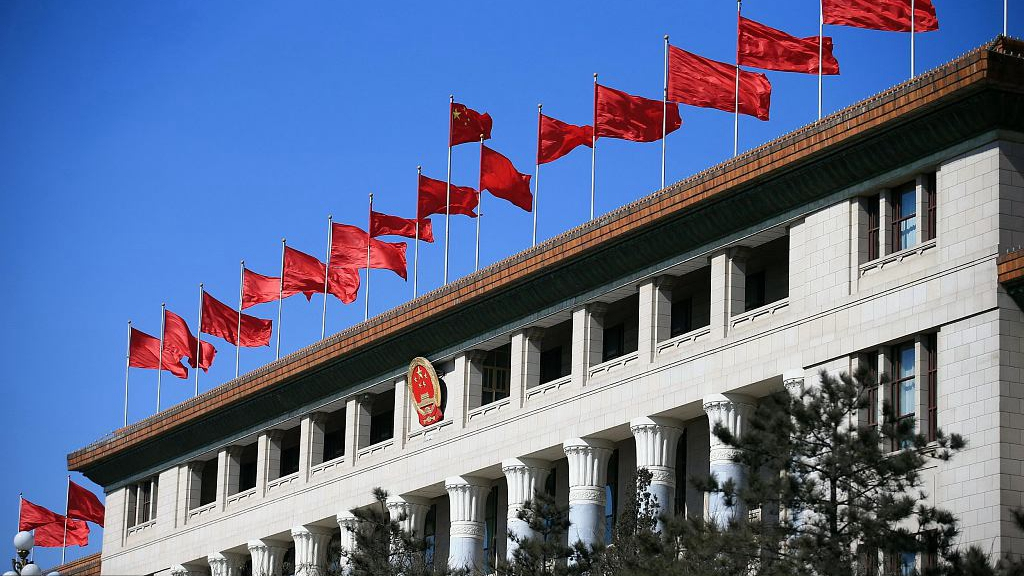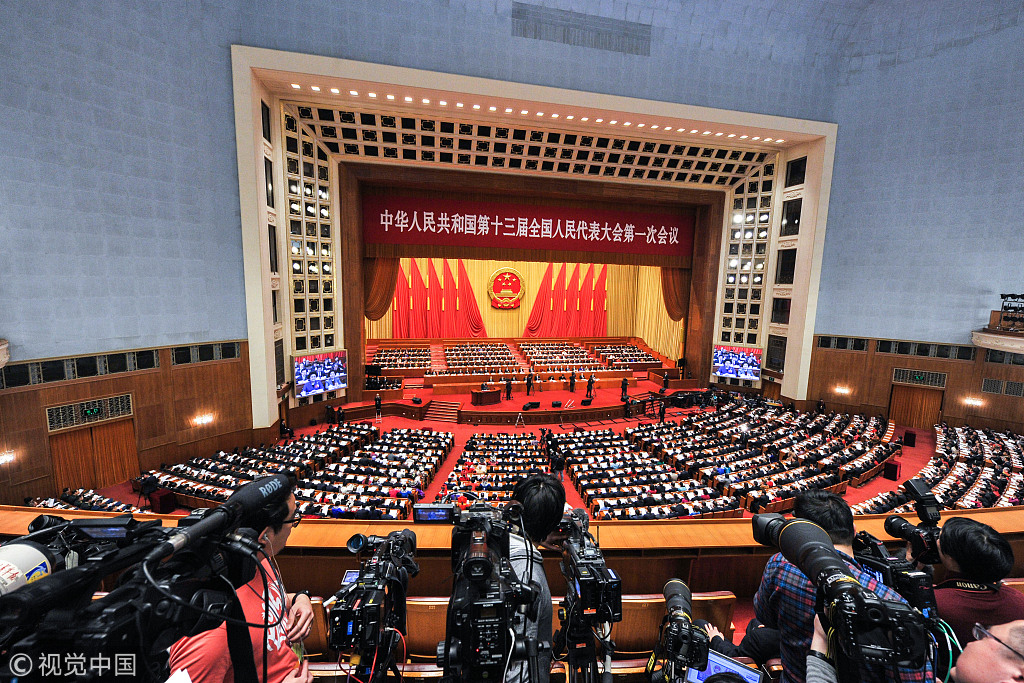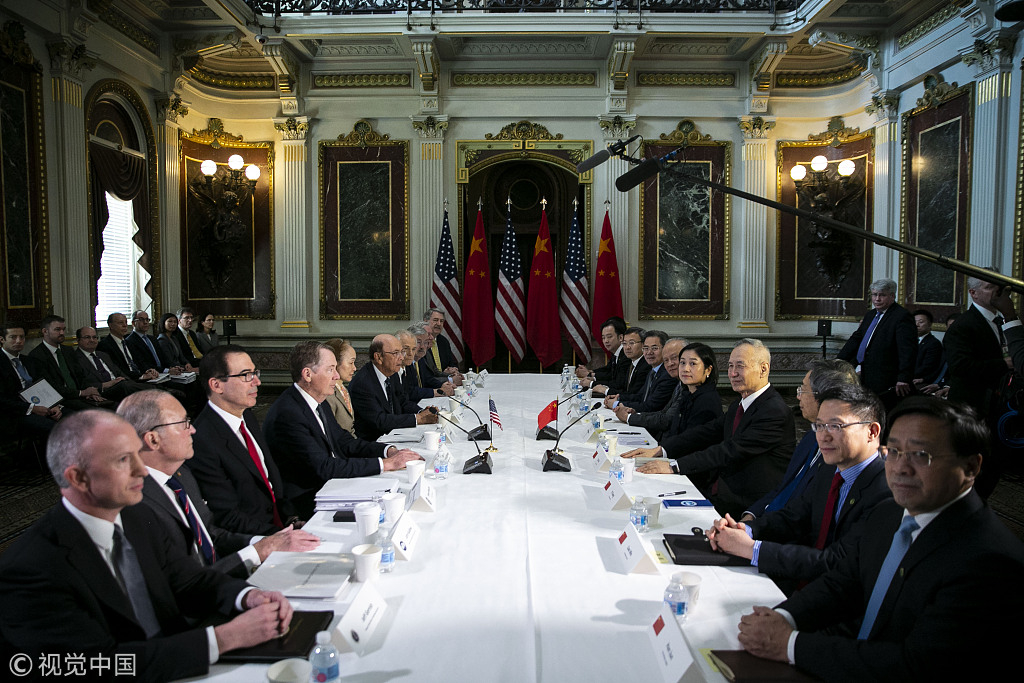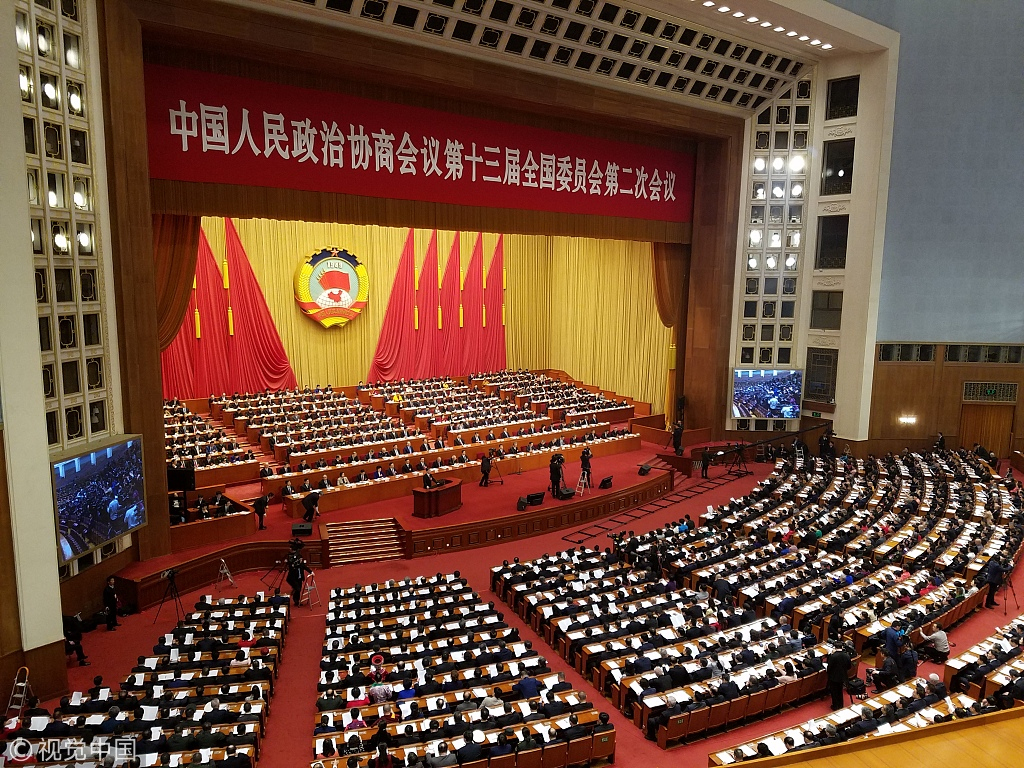
Opinion
21:31, 04-Mar-2019
Anticipating the National People’s Congress
Robert Lawrence Kuhn

Editor's note: Dr. Robert Lawrence Kuhn is a CGTN anchor, a public intellectual, international corporate strategist and investment banker.
I am looking forward to hearing Premier Li Keqiang's Work Report of the Government in the opening session of the Second Session of the 13th National People's Congress (NPC) in the Great Hall of the People. Much of the world awaits its content.
China privileges stability and consistency and so it may seems that, at least superficially, all annual NPC meetings and reports are alike.
That is not so, and what China Watchers do is to scrutinize documents for differences in emphasis: identifying key words and catch phrases, comparing the current year with prior years in order to get a sense of what is really happening behind the rhetoric and behind closed doors.
Certainly, the atmosphere is perennially positive, with accomplishments the primary positioning message.
This year, however, there are real differences in atmosphere and positioning from prior years, especially from last year, and these differences are palpable and probative.

The First Session of the 13th National People's Congress held in the Great Hall of the People in Beijing, March 5, 2018. /VCG Photo
The First Session of the 13th National People's Congress held in the Great Hall of the People in Beijing, March 5, 2018. /VCG Photo
The 2018 NPC followed the 19th National Congress of the Communist Party of China in late 2017, which had been a great success and heralded a China developing assuredly at home and ascending confidently in the world.
Optimism was in the air at the 2018 NPC, and the radical restructure of the government, combining and streamlining ministries and agencies, promised greater effectiveness and higher efficiencies.
This year the atmosphere is more sober. The economy is slowing, and uncharacteristically, China is discussing the slowing more transparently (which actually builds confidence).
The trade and tech tensions with the U.S. are recognized as of a different character from those of the past, so that even after a trade deal is reached, as everyone expects it will, Sino-U.S. relations will still become more competitive and more guarded, with the potential of decades of flux and uncertainty.
Moreover, it is not only the U.S.; there seems to be more “concerns” about China from various countries, from Belt and Road project debt to cyber security cooperation.

Robert Lighthizer, U.S. trade representative (center left) meets with Liu He, China's vice premier and director of the central leading group of the Chinese Communist Party (center right), during trade talks between the U.S. and China in Washington, DC, U.S., February 21, 2019. /VCG Photo
Robert Lighthizer, U.S. trade representative (center left) meets with Liu He, China's vice premier and director of the central leading group of the Chinese Communist Party (center right), during trade talks between the U.S. and China in Washington, DC, U.S., February 21, 2019. /VCG Photo
Most significantly, President Xi Jinping has put “preventing and defusing major risks” as top of mind, highlighting political risks, ideological risks, economic risks, science and technology risks, social risks, overseas risks, and Party building risks.
The primary task of this year's NPC, along with the Chinese People's Political Consultative Conference (CPPCC), is to deal with these risks.
Listening to today's pre-opening press conference, one can make reasonable inferences of areas of interest, exemplified by the questions selected.
Sino-U.S. relations was, as expected, high on the agenda, and the position offered by NPC spokesperson Zhang Yesui, who is a former ambassador to both the U.S. and the UN, stressed peace, stability and development.
All the big topics were covered – denuclearization of the Korean Peninsula, the Belt and Road Initiative, defense spending, the draft Foreign Investment Law, etc.

The Second Session of the 13th CPPCC held in the Great Hall of the People in Beijing, March 3, 2019. /VCG Photo
The Second Session of the 13th CPPCC held in the Great Hall of the People in Beijing, March 3, 2019. /VCG Photo
I took special interest in the question on the performance of the NPC in carrying out its supervision responsibility. Supervision is a hallmark of China's “new era” and it is instructive to follow how supervision is being carried out.
From the press conference we learned three things: the NPC's supervisory duties were carried out in accordance with the law and achieved positive results; a focus was on fighting the “three tough battles” (against risk, poverty and pollution); and enforcement and inspections were among the priorities of NPC work in 2018 (we assume it will continue).
Though these three things are general and anodyne, they do evince enhanced responsibility for the NPC, which augurs well for China's commitment to rule of law.
Supervision has been strengthened under President Xi Jinping. It is now a high priority – over the government as well as over the Party. At last year's NPC, the National Supervision Commission was established. The anti-corruption campaign continues in full force.
How the NPC exercises its supervision oversight will be an important indicator of how serious China is to institutionalize its mechanism of checks and balances.
(If you want to contribute and have specific expertise, please contact us at opinions@cgtn.com.)

SITEMAP
Copyright © 2018 CGTN. Beijing ICP prepared NO.16065310-3
Copyright © 2018 CGTN. Beijing ICP prepared NO.16065310-3